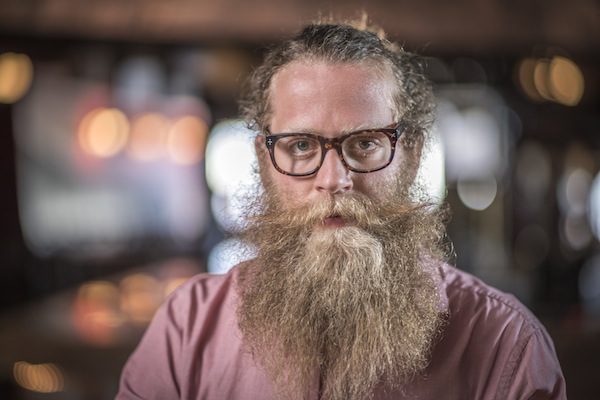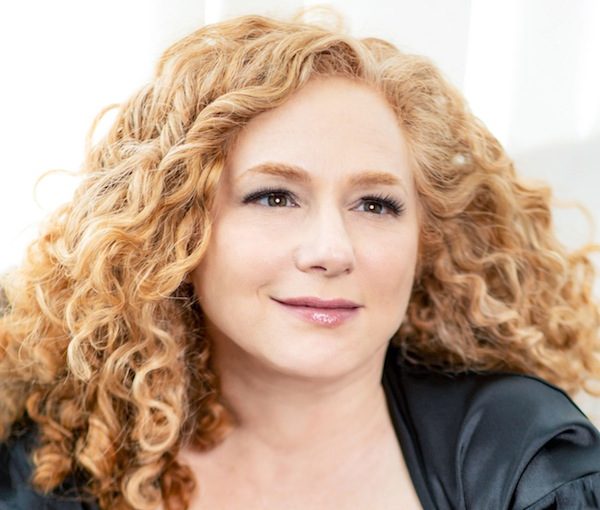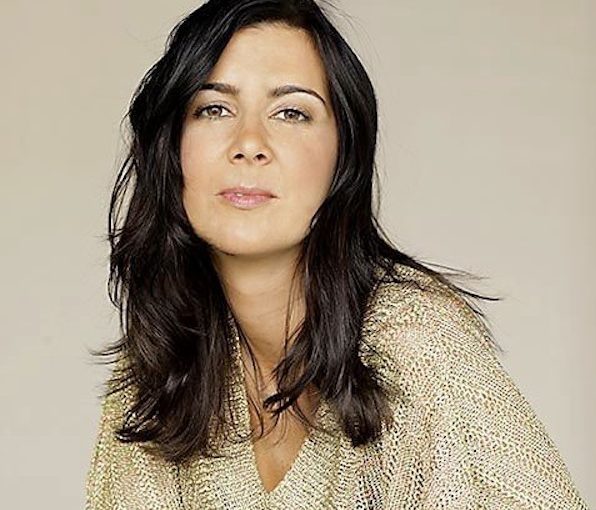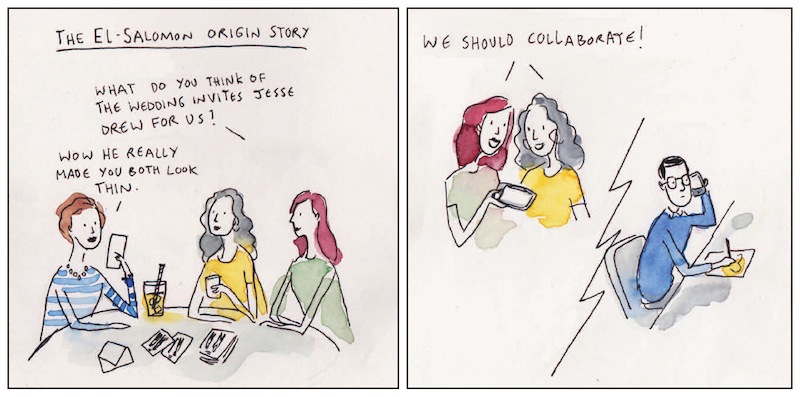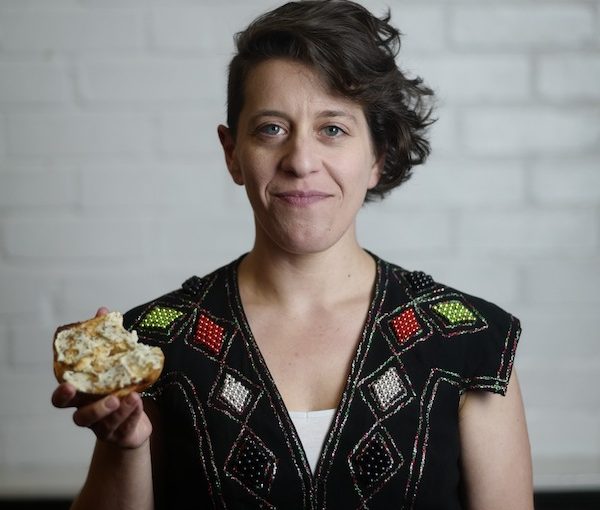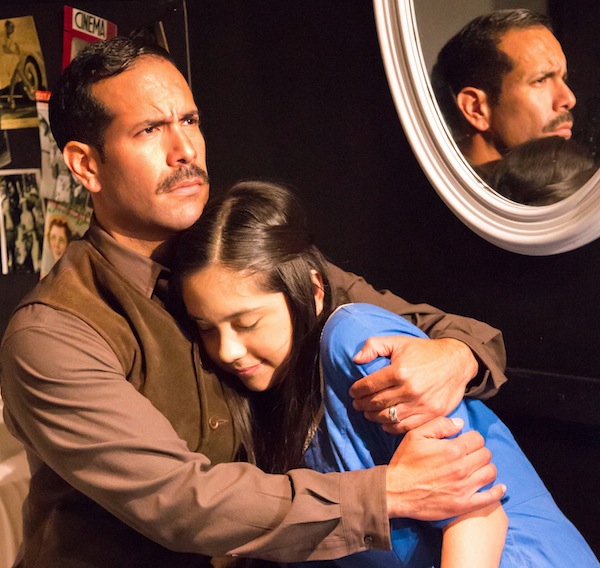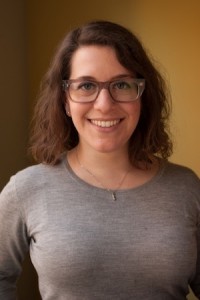Ben Caplan opens this year’s Chutzpah! Festival Nov. 21. (photo from Chutzpah!)
In the last issue of the Jewish Independent, Chutzpah! Festival artistic managing director Jessica Mann Gutteridge, festival host and stand-up performer Iris Bahr and event comedy closers Jess Salomon and Eman El-Husseini, aka the El-Salomons, were featured. This week, the JI offers a glimpse into the rest of the lineup, by order of appearance.
Musician Ben Caplan opens the festival on Nov. 21 with a recorded performance. Before the recent COVID restrictions, the show was to be presented live from the Rothstein Theatre.
Caplan was on stage here back in January, bringing Old Stock: A Refugee Love Story – which is based on the true story of two Jewish Romanian refugees coming to Canada in 1908 – to the PuSh International Performing Arts Festival (jewishindependent.ca/searching-for-a-safe-harbour). This show, Caplan will be performing songs from his album Old Stock, which is adapted from this music-theatre work.
“The story of Chaim and Chaya, and, by extension, that of a great number of immigrants and refugees who have come to Canada, is full of a great many hardships and tribulations,” said Caplan when asked what lessons from their experience might be relevant in COVID times. “Their story is not free from conflict, both with the outer world, with each other and with themselves. What we see in their story is that, through perseverance, they are able to cross the narrow bridge of their precarity into a sweeter time. It is a nice reminder that no matter how dark things get, there are always brighter moments ahead.”
* * *
Last Chutzpah! Festival, former Vancouverite Tamara Micner performed her one-woman show Holocaust Brunch here. On Nov. 22, she’s offering a first peek at a new work-in-progress from her current hometown, London, England.
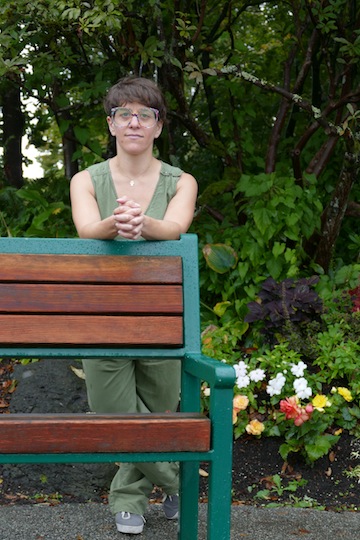
“Old Friends is very much in the early days – I would say it’s in kindergarten,” admitted Micner. “I’ve been working on it this year and the Chutzpah! Festival streaming will be the first time I perform some of the piece with a public audience. I don’t know exactly what the performance will look like or exactly what will be in it. It’s ‘nervciting’! I look forward to sharing some of the work with Chutzpah! audiences and doing a Q&A afterwards to speak more about the show. I’m hoping and aiming to present the full show in 2021.”
A key inspiration for Old Friends is the music of Paul Simon and Art Garfunkel, and their relationship.
“I find Simon and Garfunkel’s music comforting and uplifting…. The combination of Paul’s songwriting, Art’s voice and their harmonies are beautiful,” said Micner. “I also find the themes in their music resonant at this time – including loneliness, isolation, hope and a yearning for connection…. I’m also intrigued by the on-again, off-again nature of their relationship and the Jewishness in that – how we have a tendency to cling to each other, leave each other, not talk for years, but not be able to fully stay apart or let go. There’s a lot to mine in that, I think – where that comes from, what it’s about and how we can free ourselves from that cycle.”
* * *
Also on Nov. 22, New York-based playwright Rokhl Kafrissen shares her new work-in-progress.
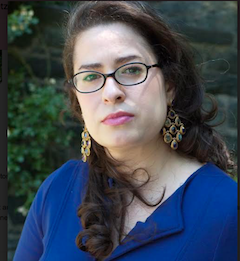
“Shtumer Shabes [Silent Shabbat] opens in the year 2000,” said Kafrissen. “A performance studies grad student named Jess is writing about the heyday of Yiddish theatre in Poland in the 1930s. Jess is studying what she calls the ‘hybrid potentialities of interwar Yiddish performance practices.’ How did Jews use their art to embody binaries like Yiddish and Polish, Jew and Catholic, urban and rural, capitalist and socialist? She argues that The Dybbuk is the ultimate expression of that hybridity.
“As the play opens, Jess stumbles into the chance to interview an honest-to-goodness Warsaw Yiddish diva. It turns out that Sonja, a 90-something veteran of the Polish-Yiddish stage, is living in her neighbourhood. Jess comes to believe that Sonja possesses a ‘lost’ play script: Shtumer Shabes. Her encounter with Sonja is also her opportunity to write history. But Jess is confronted by the elusiveness of ‘plain facts’ and the cost of writing history. For me, the encounter between Jess and Sonja represents two competing ways of understanding the past, through scholarship and through art.”
Imagining Sonja’s world wasn’t hard for Kafrissen, as she knows well Yiddish theatre, past and present, and the standard Yiddish reference sources. However, she did struggle with her protectiveness of the Yiddish past and her obligation as a journalist “to the people and productions I’ve been reading about, an obligation to tell their stories accurately and respectfully.”
“But, at some point, my inner journalist has to be thanked politely and shown the door,” she said. “If you’re going to write historically informed fiction (which is what I consider this piece), you have to be comfortable going beyond the facts. It gets even trickier because part of Sonja’s backstory … is flashback to the war, when she was imprisoned in the Warsaw Ghetto. I know enough about the Warsaw Ghetto to invent a plausible scenario. But depicting it feels daunting. The potential for kitsch or melodrama is high. My characters grapple with extremely sensitive issues, including allegations of collaboration with the Germans. It was important to me that if I was going to include such provocative topics, I had to stick closely to historical fact and stay within the realm of the possible. My characters would not be saints or holy martyrs, but real people, caught in the worst possible circumstances.”
Cast as Sonja is Shane Baker, who Kafrissen has known since she worked with him in 2009 on his one-man show The Big Bupkis: A Complete Gentile’s Guide to Yiddish Vaudeville.
“I quickly became a big admirer of Shane’s work,” she said. “He can go from the highest brow, as with his translation of Waiting for Godot into Yiddish, all the way to the lowest brow, as with his vaudeville show…. In the last few years, Shane had been working on a drag character called Miss Mitzi Manna. She was inspired in part by his close friendships with the last generation of Yiddish theatre grandes dames. So, when I got a 14th Street Y LABA Fellowship in 2019, I decided to write a play with a role for Shane in drag as my yearlong fellowship project. I knew from the beginning that the role wasn’t written for Mitzi Manna per se, but Shane’s development of the character was a huge inspiration. Writing the role of Sonja with a drag character in mind opened up a kind of playfulness and experimentation for me. Drag is such a dramatically rich device. It heightens our awareness of the artifice of theatre and interrogates the mimetic nature of theatre itself.”
A staged reading of Shtumer Shabes was supposed to have taken place last in April. “Unfortunately,” said Kafrissen, “that coincided with the world as we knew it collapsing. As I get ready to present excerpts from the play for the Chutzpah! Festival, I can see a tiny sliver of silver lining. Even with the pandemic, I’ve managed to sneak in some actor time in the last couple months, as well as getting thoughtful feedback on the script from folks both within my artistic circle and outside. The script is now so much better than the version I had in the spring, so I tell myself maybe it’s better that I didn’t present that earlier draft to the world.”
The Dybbuk by S. Ansky infuses Shtumer Shabes: Jess is obsessed with The Dybbuk and it’s why she went to grad school; and “Sonja’s career on the Warsaw Yiddish stage was tied up with the phenomenal, real world success of The Dybbuk,” said Kafrissen. “It was with a Dybbuk monologue that she auditioned for Yiddish drama school and the role of Leah (the young woman possessed by the dybbuk) was always her dream.”
This year marks the 100th anniversary both of Ansky’s death in November 1920 and the première of the Yiddish version of the play a month later. “I love the idea of having our Chutzpah! program serve as Sonja’s final tribute to Ansky and his creation,” said Kafrissen.
* * *
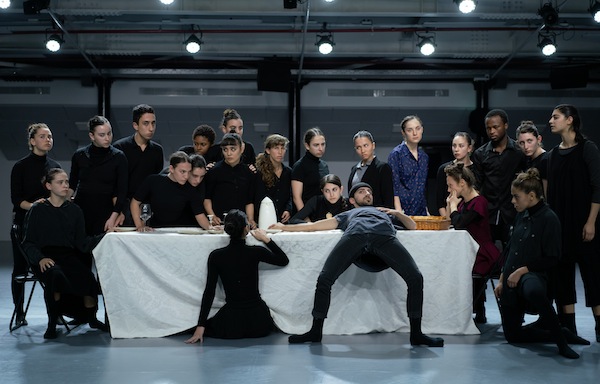
Death … and life are at the centre of Israeli choreographer Ella Rothschild’s Pigulim, which is described as “a cultural narrative [that] unfolds against the backdrop of a meal at a long dining table where three characters suffer from unbearable loneliness and battle their way between life and death. Each character travels between their individual materialistic being and their consciousness, revealing their essential humanity in relation to existence and the quest for happiness.” A pre-recorded performance of the work will be shown at the Chutzpah! Festival on Nov. 23.
In the summer of 2019, Rothschild was selected as one of the first artists-in-residence at Suzanne Dellal Centre. She started Pigulim there and continued researching it in “other places in the world with different scenarios and different cast members.” This year, back at the centre, the piece premièred in its video version.
Pigul (pigulim, pl.) “describes a law from the Jewish tradition,” explained Rothschild. “It refers to a sacrifice that was prohibited to be eaten because of a forbidden thought that the priest (kohain) had in the moment he was making the sacrifice. It can mean abomination or loathsome, and it’s not a word used in everyday Hebrew. The idea that a thought can change reality has a direct connection to what I tried to present in Pigulim. If the thought one can have determines the reality of another entity, how much from our consciousness is being present in our reality and our society?
“Another aspect of choosing this particular name is another gap that unravels between the sound of the word and its meaning. Pigulim has a nice way of rolling in the mouth. The letters are round and when you pronounce it, it almost sounds like a name of a rare flower – but the meaning of it is the opposite. It contains strong emotions and gravity. Once more, it holds this gap between what we experience and the reality.”
This gap – “a certain detachment between our body and mind” – is something with which we must live, said Rothschild, and its loneliness is not changed by “how many people are surrounding you in the space.”
“As I see it and experience it, it is a state of being, not only of certain individuals but as a mass society,” she said. “I have learnt, through working with others, more about how this gap appears and how we perceive it. We behave inside these structures that are determined for us and, yes, it leaves a gap or an absence that we don’t really understand, or we will forever try to make sense of.”
However, there is more than just absence. “I did find out that we share more than we think,” she said. “We share beauty, laughter, sadness and grief. We cry from the same things and we worry and we fear. But we also love. And that is an overwhelming thing to share.”
* * *
Israeli pianist and composer Guy Mintus – whose solo concert will be live-streamed on Nov. 24 – is about to release his third album with the Guy Mintus Trio: A Gershwin Playground.
Mintus’s study of piano didn’t follow a traditional path. “I didn’t start with classical piano,” he said. “I started on a little keyboard my parents got me, not an acoustic piano even, and I was studying a very mixed repertoire of adapted arrangements for beginning keyboard players. Among that repertoire were the Beatles, Israeli pop songs, Fiddler on the Roof and … two [George] Gershwin tunes: ‘It Ain’t Necessarily So’ and ‘Summertime.’ When I started playing those, my father handed me the Porgy and Bess album of Ella [Fitzgerald] and Louis [Armstrong]. That totally blew my mind and I started trying to emulate the arrangements on my keyboard (which had the ability to switch between different sound samples).
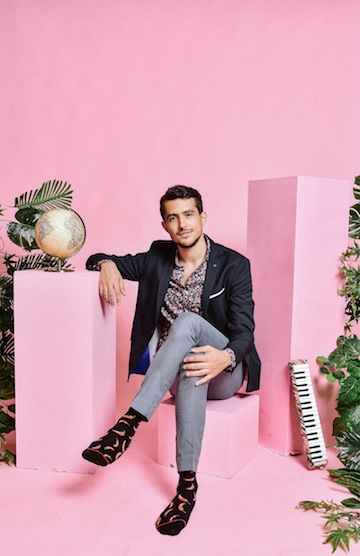
“To me, these songs are timeless – musically and lyrically. They’re very rich and have a strong musical character but yet they remain very open and flexible to let you in and bring yourself into them. The lyrics also mostly speak of things that will always be relevant. It’s not by accident that generations and generations of jazz musicians have been interpreting Gershwin.”
One aspect of the music’s continued importance is that, “unfortunately, we’re constantly reminded by these horrific events that keep happening that racism is still very much around; that the colour of your skin can easily become a disadvantage right off the bat,” said Mintus. “When I’m thinking of Gershwin, I’m also considering his background as a Jewish-American composer coming from a family of immigrants. Of all things he could be fascinated by, he was fascinated by Black American music and ended up writing the first jazz opera bringing this marginalized music to the heart of the consensus. More than that, he wouldn’t allow Porgy and Bess to be premièred at the Met Opera because, at the time, they wouldn’t allow Black performers. He made it mandatory that, if Porgy and Bess is ever performed, main roles have to be performed by Black people. Now, Porgy and Bess has its controversies in regards to race and representation but I believe in the essence of its coming from a place of great respect to the incredible culture its getting inspiration from.
“I think that the Jewish and African-American communities actually share quite a lot in common,” he continued. “There’s certainly a collective trauma we’re each dealing with. To me, Gershwin was standing right in the middle of that – in ‘Rhapsody in Blue’ (which is on the album, as well, in a solo version) you literally have a meeting point between klezmer and the blues. I want to echo that connection, which is still very relevant to me, through my own lens as an Israeli who lived, studied and worked in New York. It’s important to give back, acknowledge and show respect where it’s due. Last July, the trio and I did an online fundraiser concert called Gershwin Global. It was in order to raise funds for the Jazz Foundation, who takes care of elderly musicians and emergency cases. This music comes from people who gave their lives to it – if we benefit from it, we’ve got to find a way to also give back to its source.”
The new album will be launched on Nov. 27 and, given COVID, touring it is not an option. Nonetheless, Mintus said it is worthwhile to put it out anyway. “Life goes on, music goes on and, in my opinion, it’s as relevant, if not more, to release new music in this period,” he said.
With the internet, there are many ways to connect with people all over the world, he added. “This poses a creative challenge how to find interesting, experiential ways to share this music with the world; how to share the story behind the album. Each single has a unique artwork, there are videos, a bunch of online live events that are planned – all of this is going to be available through my Facebook page (facebook.com/guymintusmusic). The fact that I’m not switching countries so often as normal allows me a different kind of focus and attention on how to turn this release process into the most fun, meaningful and creative process it can be.”
* * *
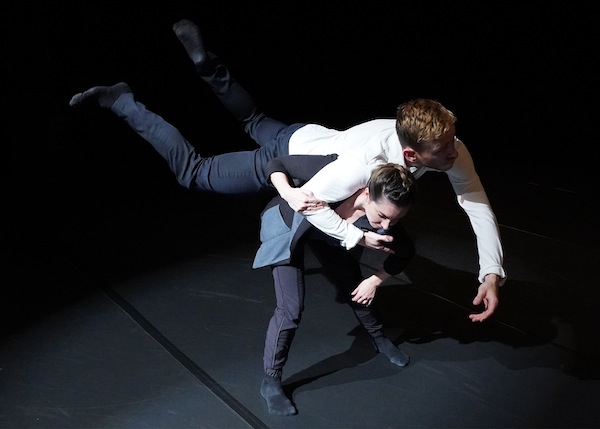
Chutzpah! artist-in-residence this year is choreographer Idan Cohen (Ne. Sans opera and dance). The world première of his Hourglass, which is presented by RBC, will be performed and live-streamed from the Rothstein Theatre on Nov. 25.
“Both the residency and this opportunity to present at Chutzpah! are the best things that could have happened to me during a time when artists are facing difficult challenges,” Cohen told the Independent. “I believe with all my heart in the strength and importance of the arts for a healthy society. It is not a luxury but a necessity, especially within a specific culture. Judaism is not just a common history or a set of beliefs, but a diverse culture that needs to be ever-evolving, reinterpreted and recreated, respecting and learning from our common past while creating a shared future. Having Jessica [Mann Gutteridge] share some of the same core values, and acknowledge the importance of going forward with the festival this year, has been such an empowering force for me and my collaborators during these past few months.”
Hourglass is an exploration of aging set to music by Philip Glass. It is a duet with former Ballet BC company dancer Racheal Prince and returning Ballet BC company dancer Brandon Lee Alley.
“As dance artists,” said Cohen, “our focus is on our most intimate tool and instrument: the human body. When that body is extremely intelligent and qualified, as Racheal’s and Brandon’s bodies are, true magic happens on stage. It’s like an ancient fairytale told to you as a child: it represents both the past and the future, it’s exciting and haunting, and it teaches you something valuable through the most basic elements of storytelling. No need for fireworks or special effects.
“For this edition of the festival, we are presenting 30 minutes of dance to four out of 20 études composed by Glass played by the conductor and celebrated pianist Leslie Dala (Vancouver Opera, Bach Choir). Leslie was actually the one who first presented the idea of this project to me, and dancing and working with him has been a most gratifying experience. There are linear elements in the piece, but Glass’s music marries the abstract and the linear, the romantic and the intellectual, in a way that not many composers are able to do, and that’s what makes it so unique.
“Racheal and Brandon, who are young yet mature and highly experienced dancers, can embody different physical states in such a fascinating way,” said Cohen. “They had a significant role in our exploration of the theme of aging and time.”
Being a real-life couple means that Prince and Alley have been able to rehearse together safely during COVID, and the Rothstein Theatre is large enough for them to work with Cohen at a safe distance. “Since Leslie is also dancing (!) in the piece,” added Cohen, “we had to adapt in order to keep everyone safe, which is, of course, the priority. This has definitely been a great learning experience, and an immensely gratifying one.”
The Chutzpah! Festival runs Nov. 21-28. For tickets, which start at $18, visit chutzpahfestival.com or call 604-257-5145.

